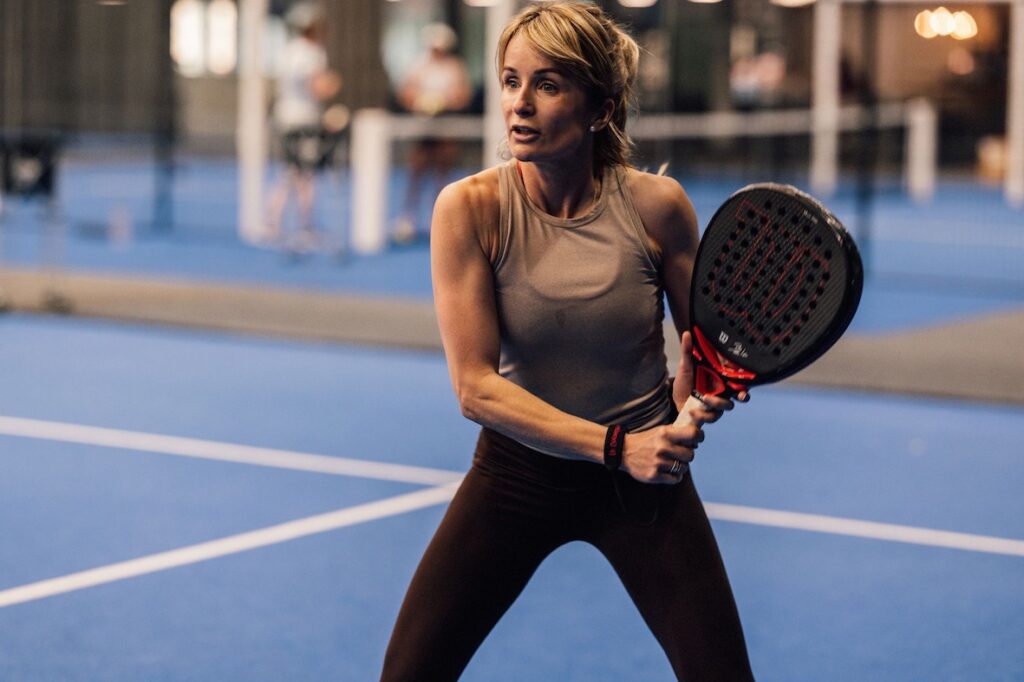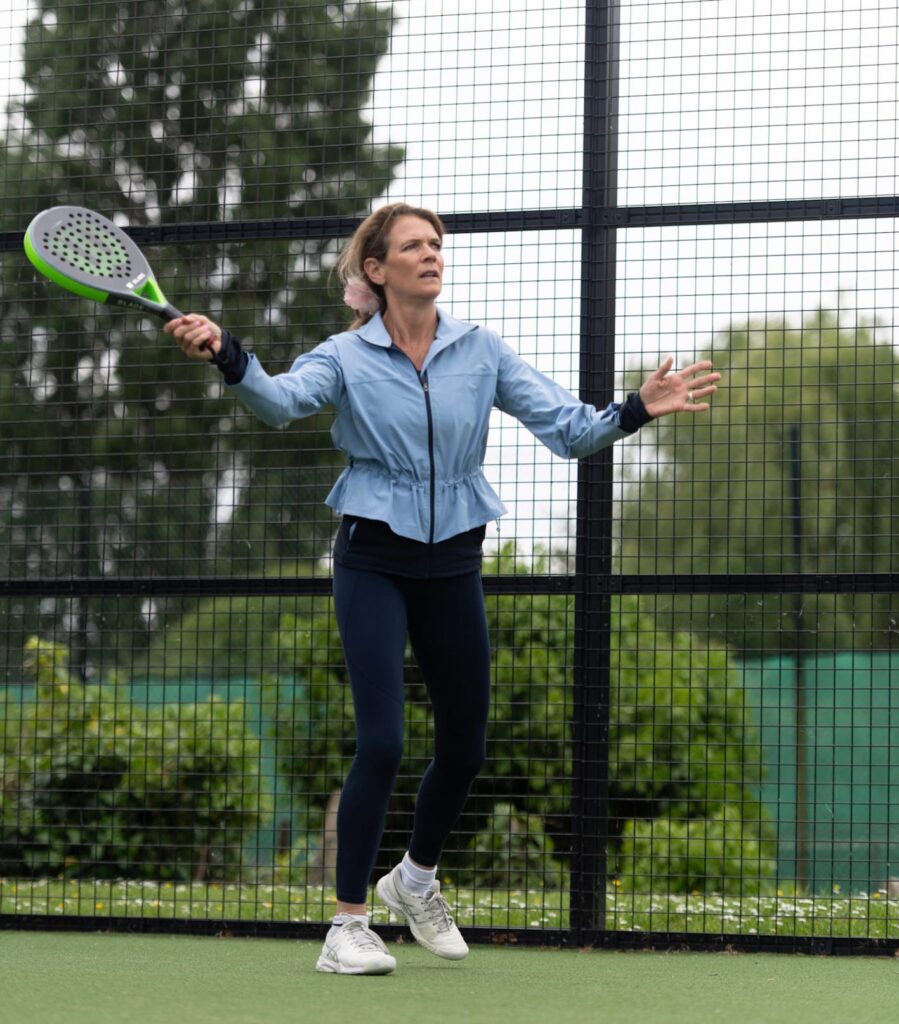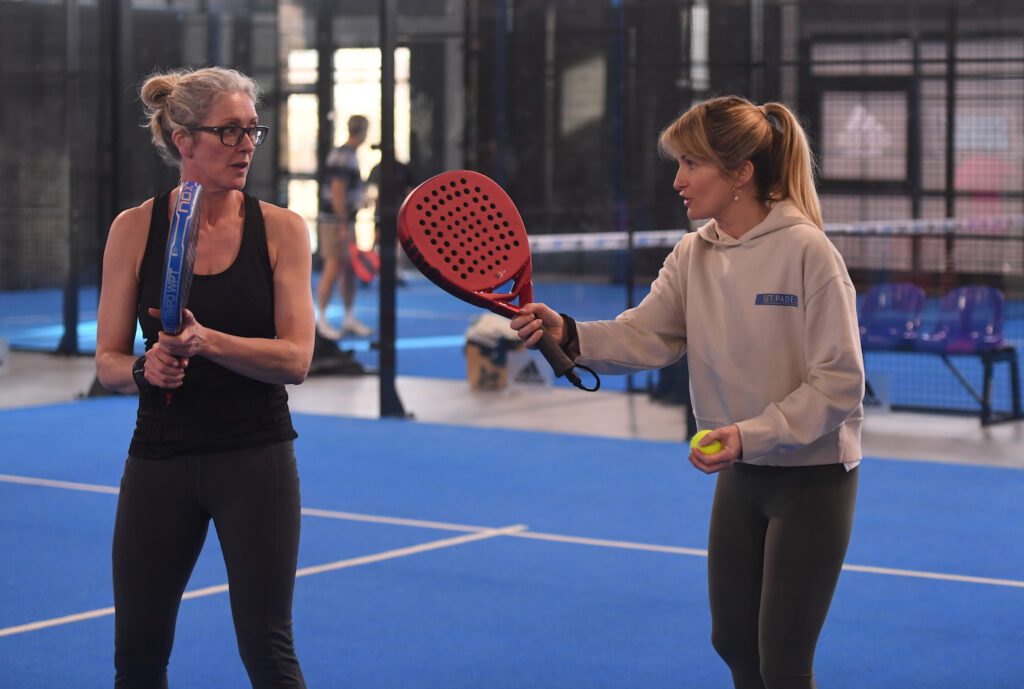Tordoff’s top five padel tips for tennis players
Top 5 padel tips for tennis players
Padel is the world’s fastest growing sport and on a massive upward trajectory in the UK, with its popularity and demand at an all-time high. It’s often described as a cross between tennis and squash so it’s no surprise that many players from both sports are giving it a go. But tennis players particularly need to adjust their game, as Emily Thomas reports.
Tennis players are at a natural advantage when picking up a padel racket, with their established hand/eye coordination and armoury of lobs, volleys and ground strokes.
They may initially find the glass walls constrictive, claustrophobic and slightly impossible but quickly learn to love the exciting and dynamic opportunities the walls present to keep points alive. The game has an addictive quality and there’s little choice but to improve.
However, tennis players may step onto the padel court with a bag full of shots and plenty of racket sport experience but their years of top spin, hard hitting and preparing early for sweeping ground strokes can work against them. And while both games are strategic, padel has a larger variety of shots to learn.
So, tennis players, there are five key points that most padel aficionados agree upon when switching sports:
- Power is not rewarded, placement of the ball is
- Move up and down the court as team.
- Lobs are a vital element of padel
- Make your racket swing smaller
- Invest in coaching
As a tennis player you think if you whack it hard enough they won’t get it back but to my initial surprise it kept coming back.
- Abigail Tordoff, former GB tennis player
Slow burn
I spoke to former tennis pro and Octagon sports agent Abigail Tordoff about her rise in the padel world. Abigail contributed greatly to the GB tennis community, representing her country on several occasions. She is now CEO of tennis charity Give It Your Max, which enhanced the lives of disadvantaged and vulnerable children in the UK through tennis. Abigail has also turned her hand to padel and in just two years ascended to being a padel pro, playing regularly for senior and open international sides and hosting coaching clinics.
But it wasn’t love at first hit for Abigail: “I first picked up a padel bat in 2012, just before the London Olympics when I was out in Barcelona for work. I was invited to play with Spanish former pro motorcyclist Sete Gibernau in his back garden. I didn’t really enjoy it and kind of thought what is this game?”
She didn’t play again until lockdown, when her love for the game blossomed. Having retired from professional tennis in 2000 she found she did not miss the tour. However, once playing padel regularly her competitive spirit shone through and she was hooked.
“I got the padel bug that everyone talks about,” she said. “I’d had quite a lot of time out of competitive sport and I hadn’t realised that I had missed competing. Once I started competing in padel I thought this is amazing fun.”

Dominated
In her first year she partnered with Lisa Phillips and the duo dominated the UK padel scene, winning the vast majority of tournaments they entered. “We also played a couple of tournaments abroad, which was a huge eye opener,” she said.
She tries to play most days whether that be early in the morning, evenings or lunch breaks: “I work my padel sessions around my job and children, so it is a bit of a juggling act, but it is my passion and I absolutely love it.”

Former GB tennis ace turned padel player and Game4Padel ambassador Annabel Croft has this advice:
“I would say be patient. A lot of former tennis players want to come onto the padel court and smash the ball around but padel is much more about placement of the ball and working out where to stand so you are in the right place.”
Unlearning
Tennis gives players a free pass into padel and Abigail’s game benefitted from years on the professional tennis tour. She acknowledged this ‘huge advantage’: “You have good hand eye coordination, you know how to volley, split step and move around the court and, most importantly, compete.”
But even she had to unlearn some old tennis habits, as she explained: “As a tennis player you think if you whack it hard enough they won’t get it back but to my initial surprise it kept coming back.”
A mental shift was required, with Abigail telling herself ‘you can’t whack this ball, less is definitely more in padel’.
Room for two
Abigail still loves tennis and believes the two sports can co-exist and complement each other. She’d like to see more tennis players make the shift, particularly semi-professionals nearing the end of their tennis journey, and is a firm advocate for getting more women and girls into padel.
“There are so many benefits both mentally and physically,” she said. “Especially when women get older, in terms of muscle loss, the benefit of playing any racquet sport is just so great.”
Abigail organises female-focussed coaching clinics through her company SET. For information e-mail hello@setpadel.club.






